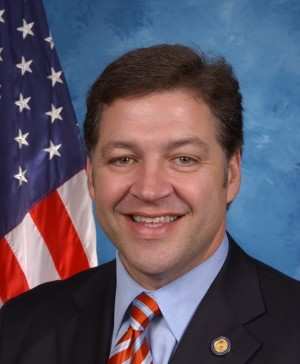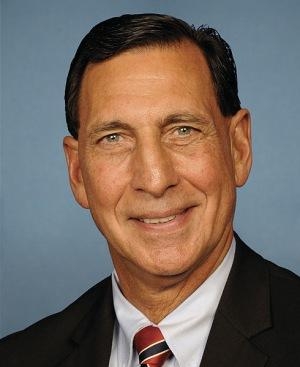Full Committee Chair Bill Shuster (R-PA) Says Valuable Lessons Were Learned
The U.S. House Transportation subcommittee on Aviation held a hearing Tuesday to examine the "Lessons Learned" from the battery incidents aboard Boeing's Dreamliner. The airplanes were recently returned to service after Boeing engineers re-worked the battery enclosure, and added insulation between the lithium-ion cells of the units.

"Engineers from Boeing and the FAA spent thousands of hours to find a mitigating solution that would allow for the safe return to flight," said full committee chair Bill Shuster (R-PA) (pictured) in his opening statement. "The final approval of the comprehensive battery solution came only after confirmation that all possible causes of the battery short circuit were addressed. New aircraft with new use of technology can experience issues, and it’s important that they be addressed early. However, this does not mean that these aircraft are unsafe.
"The incidents, the FAA and Boeing’s responses to the incidents, and their reviews of the 787 certification process, are a valuable learning opportunity."
"The Subcommittee will continue to monitor the FAA’s certification processes and the 787. To assist in this effort, today we will hear from the FAA and Boeing on lessons learned as a result of the 787 battery incidents and the comprehensive certification review," said subcommittee chair Frank LoBiondo (R-NJ) (pictured) in his opening statement.

"This hearing is not about laying blame. Instead, today we will take a constructive look at what has been learned from these incidents.
"It is important to remind ourselves that the United States aviation system is the safest in the world. This is due to the dedication and commitment of all stakeholders, who in situations like this, work together to ensure the safety of the flying public."
Peggy Gilligan, FAA Associate Administrator for Aviation Safety, said in her prepared remarks that "new products and technologies, in all industries, often have operating failures when they first go to market. Aviation is no different, but the consequences of failure can be so much more significant that mitigation of potential failures are build into the certification process."
Gillian said the lessons learned from the grounding of the Dreamliner fleet is that the agency needs to spend more time overseeing communication and ensuring a clear line of accountability of all required changes down the supplier chain. "We also look for ways to improve the integrity of the process with the addition of independent review of the work done."

She also added that those people involved in the self-certification part of the process are qualified to serve in that role. "FAA seeks the participation of industry experts who can add a level of safety or knowledge that can improve the process or the product. Limiting the use of technical experts because of who they work for is the equivalent of imposing limitations on problem solving. That is not a limitation the FAA would ever support," she said.
 Klyde Morris (05.02.25)
Klyde Morris (05.02.25) Classic Aero-TV: Introducing The MD302--Mid-Continent's Standby Attitude Module
Classic Aero-TV: Introducing The MD302--Mid-Continent's Standby Attitude Module ANN's Daily Aero-Linx (05.04.25)
ANN's Daily Aero-Linx (05.04.25) ANN's Daily Aero-Term (05.04.25): Jamming
ANN's Daily Aero-Term (05.04.25): Jamming Aero-News: Quote of the Day (05.04.25)
Aero-News: Quote of the Day (05.04.25)





